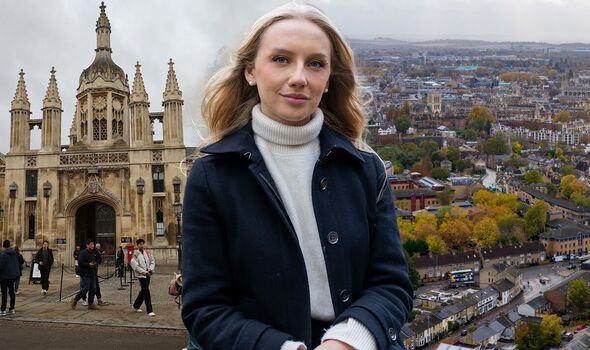Students at Cambridge University, recently dubbed the UK’s “wokest university” by the think tank Civitas, displayed an unexpected reluctance to engage with media representatives during a visit to the institution. Despite its reputation for academic excellence, the responses from students when approached for conversation were overwhelmingly dismissive.
On a visit to the historic university on March 25, 2024, the atmosphere was bustling with students navigating the cobbled streets, many clad in matching university-branded jackets and laden with books. The expectation was for vibrant discussions with young scholars on current issues. Instead, the encounter was marked by a significant lack of engagement.
In a span of seven hours, only one student, Maeve Halligan, president of the newly established Society of Women, agreed to speak. The society has garnered attention for its controversial stance and has faced severe backlash online, including accusations of transphobia. Halligan described the comments received by the society as vitriolic, reflecting a broader cultural clash within the university’s community.
Many students responded to attempts at conversation with abrupt refusals. One student reportedly stated, “No, I don’t like the Express,” before walking away. Another remarked, “I don’t even know who the prime minister is, sorry,” a comment that raises questions about the political awareness of students at such a prestigious institution.
The lack of interaction aligns with Cambridge’s recent initiatives, including unconscious bias training and the introduction of race-awareness workshops for new students. Additionally, the university has implemented policies such as mandatory pronoun signatures in emails and the controversial attempt to apply trigger warnings to pro-life student stalls. These measures have contributed to a campus environment that some perceive as insular, particularly towards individuals associated with more traditional media outlets.
The Society of Women, while facing significant criticism, represents a faction within the university that seeks to challenge the prevailing narratives. Halligan highlighted the importance of fostering dialogue on women’s issues, despite the backlash. The society’s formation and its efforts to advocate for women’s rights amid the changing landscape of gender identity discussions have sparked both support and opposition.
Overall, the experience at Cambridge University illustrates a growing divide between traditional media perspectives and the evolving cultural dynamics within academic institutions. The reluctance of students to engage with representatives from media outlets perceived as right-leaning raises questions about the state of discourse in elite educational environments and reflects broader societal trends regarding free speech and dialogue.
As universities like Cambridge continue to navigate these complex issues, the need for open conversations remains paramount. The engagement with diverse viewpoints is crucial in shaping a well-rounded academic experience, one that encourages critical thinking and debate rather than retreat into echo chambers.







